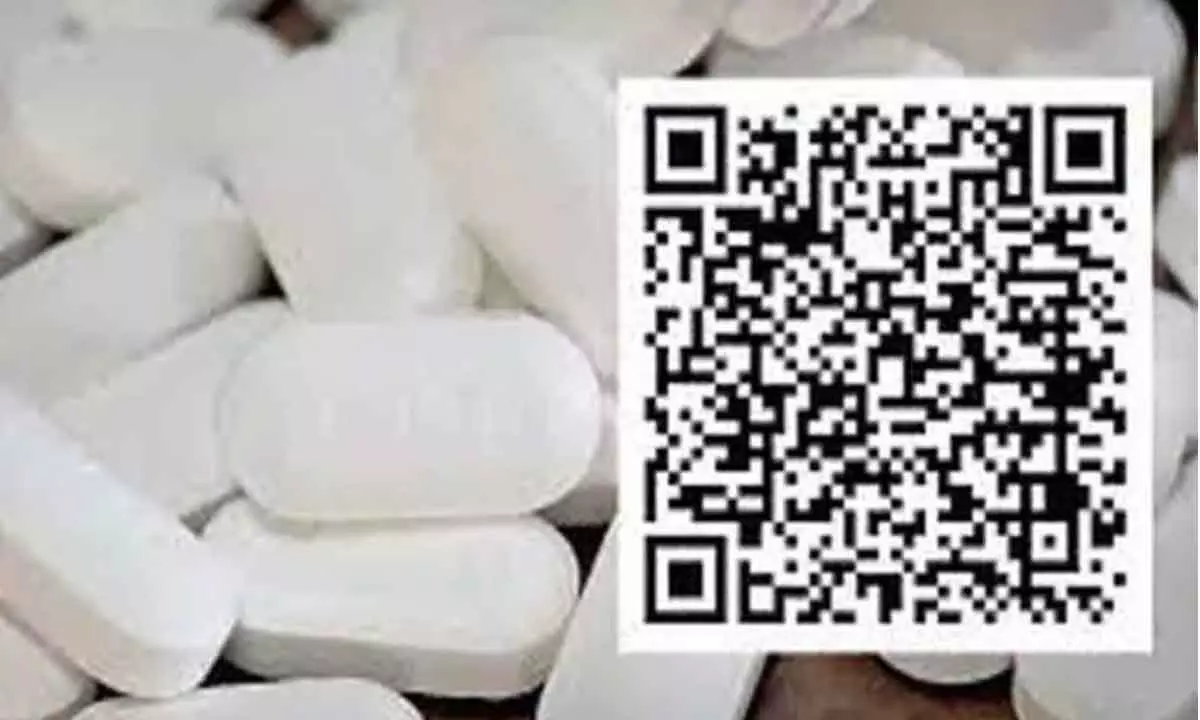Govt move for quality APIs laudable

Come January 1, 2023, Quick Response (QR) code or barcode on the label of all active pharmaceutical ingredients (APIs) will become mandatory in the country.
Come January 1, 2023, Quick Response (QR) code or barcode on the label of all active pharmaceutical ingredients (APIs) will become mandatory in the country.
According to a notification issued by the Union Health Ministry on January 18, 2022, all APIs manufactured or imported to India should bear QR code on its label at each level of packaging that stores data readable with software application to facilitate tracking and tracing of the ingredients used in all medicines. The Health Ministry came out with the notification -GSR 20 (E) amending Labeling Rules of Drugs and Cosmetics Rules, 1945. The ministry inserted a sub-rule (5) after the existing sub-rule (4) under the Rule 96 of the Drugs and Cosmetics Rules, 1945 through the amendment. The amendment Rule is scheduled to come into force from January 1, 2023.
According to the new sub-rule, every active pharmaceutical ingredient (bulk drug) manufactured or imported in India shall bear Quick Response code on its label at each level packaging that store-data or information readable with software application to facilitate tracking and tracing. The stored data or information shall include the minimum particulars including unique product identification code, name of the API, brand name (if any), name and address of the manufacturer, batch number, batch size, date of manufacturing, date of expiry or retesting, serial shipping container code, manufacturing licence number or import licence number and special storage conditions required (if any).
The Union Health Ministry's initiative in this regard is a laudable one as APIs of good quality is core to the manufacturing of effective and safe medicines. The implementation of QR code on API packs will help track and trace medicines during the entire supply chain and ensure its authenticity. Surely, it is a right step by the government as supply of spurious and substandard medicines in the pharmaceutical market has been a major issue plaguing the country for a long time. Though the Indian government has periodically been taking several measures to contain, if not completely eradicate, this menace, it seems to have failed in its attempts as there are reports of spurious and substandard medicines making its entry in the pharmaceutical supply chain in the country. Of course, the new Rules provide an impetus to the trace and track guidance which aids identification, capturing and sharing of important information on medicine packs.
Quite expectedly, the pharmaceutical industry in the country by and large has welcomed the government's move. However, the MSME pharma companies have voiced concern that mandatory requirement of QR code on the pack of APIs manufactured in the country will further add to the cost of bulk drug manufacturing in the country. So, mandating of QR code is an unnecessary burden on MSMEs which have a miniscule share of exports. The MSMEs are concerned that they are already reeling under steep rise in prices of imported Chinese APIs. They argue that QR code is hardly effective in addressing spurious or adulterated API menace. Hence, it would be a futile exercise to put in place QR code to ensure API quality. It is in this background, the pharma MSMEs have recently urged the government to roll back its decision on mandating QR code on the label of all APIs from January next year. The MSMEs have now appealed to the government to suitably amend it to make QR code mandatory only for imported APIs to prevent the menace of spurious or substandard APIs in the country. MSMEs argue that APIs are sold B2B and not directly to the consumers. Therefore, in B2B if any spurious or substandard APIs are received by formulation units then the same is rejected and returned to the API manufacturer or supplier. There is no way the APIs can directly be consumed by consumers or patients. Therefore, QR coding on APIs does not serve any purpose on curtailing spurious medicines to patients or consumers. Besides, since APIs are sold in HDPE bags or drums, affixing barcodes on the same can prove futile because during transportation or rainy season, there are chances that it may get spoiled or torn as these are bulk packing and are thrown in the lorry unlike finished formulations which are packed in cartons and are handled with care.
As the D-day for the implementation of mandatory QR code on APIs is approaching fast, the government should come out with some mechanism to assist the MSMEs in implementing it. It is a fact that the MSME API manufacturers in the country neither have the manpower nor funds to create additional infrastructure for QR coding in their premises.










